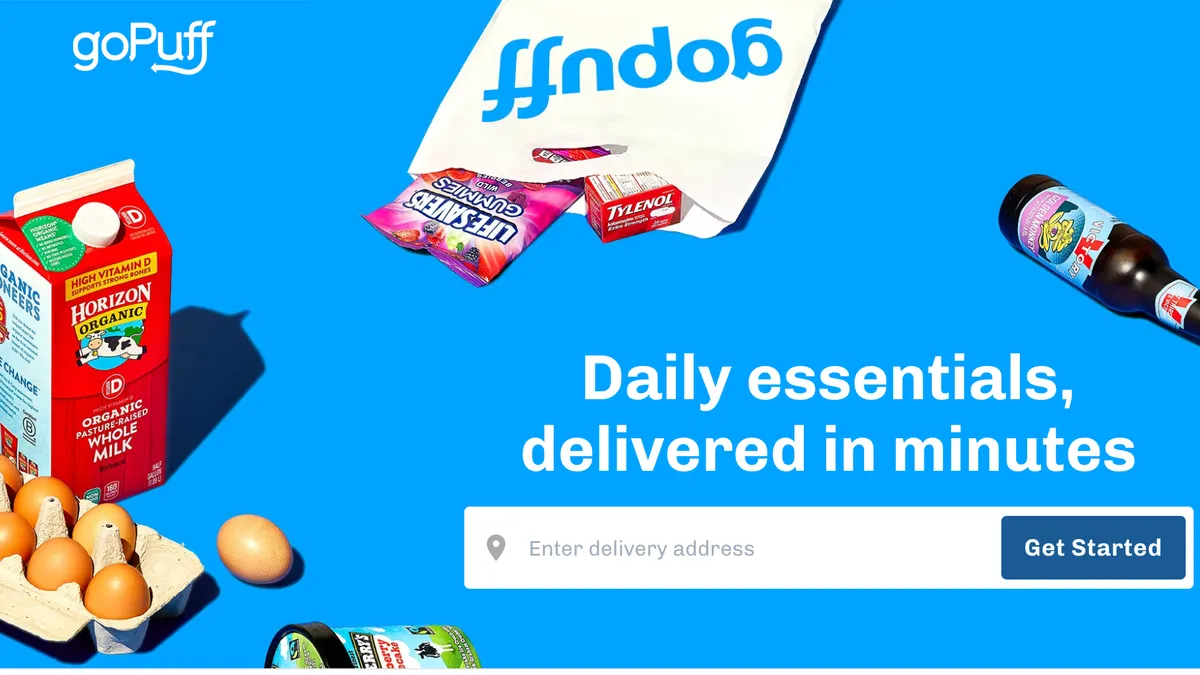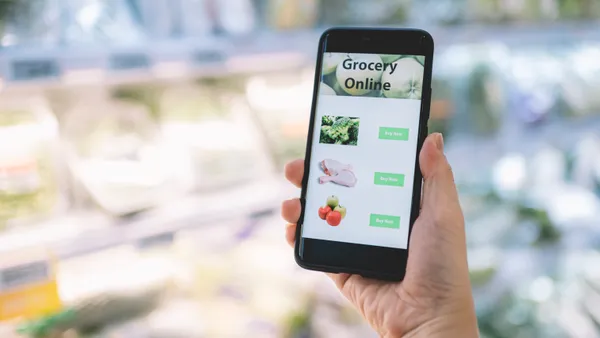Dive Brief:
- Convenience delivery company Gopuff, which recently rebranded from goPuff, has discontinued its ship-to-home service, the company confirmed Tuesday.
- The company rolled out “goPuff Shipped” to markets across the country late last year in order to sell products to customers outside of its same-day delivery areas. According to a customer service page, the program offered a “curated” selection of products for home delivery within two days through FedEx and UPS.
- The development likely reflects low demand for the service, according to Jordan Berke, founder and CEO of Tomorrow Retail, who closely follows the company, and further focuses the fast-growing firm on its sub-one-hour delivery model.
Dive Insight:
GoPuff Shipped was a short-lived experiment that tried to stretch the company’s offering beyond its core on-demand service, which offers delivery of everything from beer to over-the-counter medicine in as little as 20 minutes. It was also a way for Gopuff to generate excitement and customer trial as it rapidly builds dark stores across the U.S.
The service charged a $5 delivery fee that was waived for orders over $45. Any orders containing alcohol came with a $10 charge. The alcohol charge was removed for members of the company's Fam membership program.
Berke said shoppers likely didn’t see the value in waiting up to two days for products that are primarily impulse buys. Gopuff offers a limited selection of snacks, beverages, consumables and some fresh items like apples, carrots, packaged salads and ground beef. The company makes money by setting prices around 30% higher than grocers' and offering a low $1.95 delivery fee, Berke said.
“Their value proposition ends at that 30-minute trade area,” he said. “Waiting two days to get overpriced iced tea doesn’t calculate for most customers.”
A message on the company’s app on Tuesday informed customers the two-day service was closing down and hinted that same-day service would soon become available: “Check back soon. We’re no longer offering our 2-day shipping service, but we plan to expand our on-demand delivery to your area soon!”
The development also underscores the limitations fast-delivery firms like Gopuff face as they try to build value for investors and reach more customers. Although Gopuff has been successful at targeting population-dense neighborhoods and college campuses, the catchment areas around its dark stores are small in order to fulfill its fast-delivery promise. The company has been successful in reaching college students and other young consumers, but may struggle to expand its audience.
Berke believes that the company will eventually face pressure from investors to expand its assortment — something that isn’t easy to do inside its small facilities, which each store more than 2,500 products.
Gopuff recently announced $1.15 billion in new funding and operates 250 dark stores in addition to more than 160 recently acquired BevMo locations. In recent weeks, it opened dark stores in Santa Rosa and Walnut Creek, California; Jacksonville, Florida; Washington, D.C.; and Las Vegas.
Ultrafast delivery is attracting a lot of investor capital globally as demand for online grocery has dramatically increased over the past year. In the U.S., Gopuff is joined by DoorDash’s Dashmart in offering convenience delivery in 30 minutes or less.













